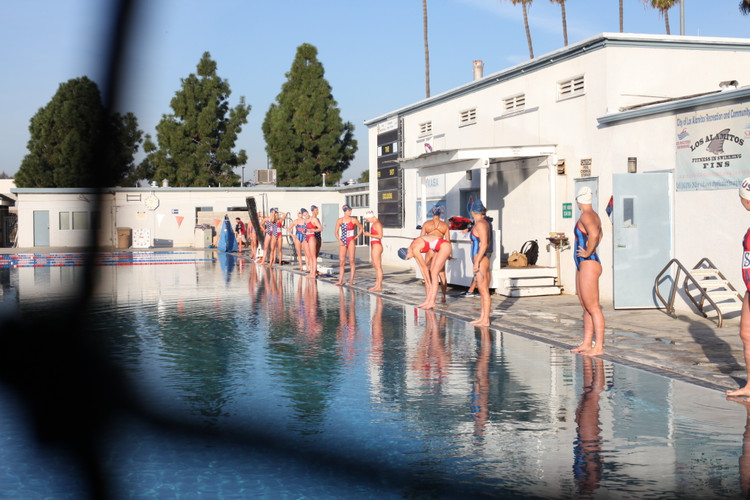Sport Psych Wednesday with Brian Alexander - Finding Your Place on a New Team
Posted by Brian Alexander on Feb 8th 2017
Developing a role and building cohesion with teammates in a new team can be one of the most challenging transitions for athletes. Essentially, you are trying to build trust and connect with your new teammates and new coaches within a time frame and a team culture that may or may not be defined or conducive to success. On a water polo team, some of the challenges you encounter include developing a role, developing synergy and chemistry with other players in the pool, matching your learning style with the coaches teaching style, social dynamics outside of the pool, learning new systems and tactics, and adapting to new training and competition schedules.
Any time you are moving through change, there are some important developmental stages that need to be understood and previewed. You may find excitement at the start of a new opportunity. You will find uncertainty when the situation and team dynamics do not quite match your expectations. You may experience regret or uncertainty when you start to learn about all the demands of the team, coaches, and schedule. Through these stages you will need to understand, train, and compete with a clear understanding of your reason why you joined this team. The drive that propels you through these developmental stages of change will help you persevere through the most challenging times and help you see the positive opportunity to become a better water polo player.
While it is important to preview the developmental stages you can encounter when faced with a team change, it is also important to develop mental skills through intentional practice so that you excel on your new team. Here are some important ideas to put into practice:
- Use your support network outside of the team: Your support network includes your family, friends, and other teammates who have shared memories with you during your life or water polo experiences. If you keep them close, then you will always have someone to share your successes and challenges with who understands where you have been and can remind you of what makes you successful. These people will always be your backbone.
- Ask your new coach what role you can play on the team: The most successful teams have clearly identified positions and situations where they count on the members of their team to step in and fulfill a void. In water polo, roles might include an offensive or defensive specialist, a post up player, an outside shooter, a power play specialist, a training or practice player, and certain types of leaders. Prepare to have a meeting with your coach as soon as you can by finding the right language to ask them how you fit into the team dynamic from their point of view and then work your style into that role. Remember that you will need to adjust your communication style to that of the coach.
- Develop connections with teammates outside of the pool: It is so important to connect with new teammates outside of the practice and competition environment. Look for times to grab a post practice meal with teammates and just enjoy your teammates as people outside of the sport. Parents and coaches can help organize weekly gatherings outside of practice to provide opportunities for the athletes to bond in non-water polo situations. Be vulnerable enough to share something with new teammates that they would not know through your interactions in the pool.
- Align your beliefs about the game and your goals in your personal performance with the values and mission of the team: The differentiating factor between individual sports and team sports is the collaboration of the members of the team toward pursuing the common goal of winning together. You may need to adjust your personal goals and beliefs slightly to align with the team goals but there should be some similarity between them. Seeing the team goals as your own will also add a great deal of personal ownership of team success.
While these are just some ideas worth considering as you join a new team, you may find that following them yields significant enjoyment and ease with which you transition into your new team environment. Remember that playing sport should be an enjoyable process in which you learn lessons and skills that can transcend into any part of your life. Continue to learn, to improve, and to find your own level of personal excellence.
About the author: Brian Alexander is an athlete mental skills coach who helps athletes learn to train mental aspects related to their sport by implementing sport psychology techniques. Contact Brian for mental skills coaching via email: alexander.brian3@gmail.com or at www.athletementalskillscoach.com. Also follow him on Twitter @BA_POS_MIND Facebook (Athlete Mental Skills Coach), and LinkedIn.

